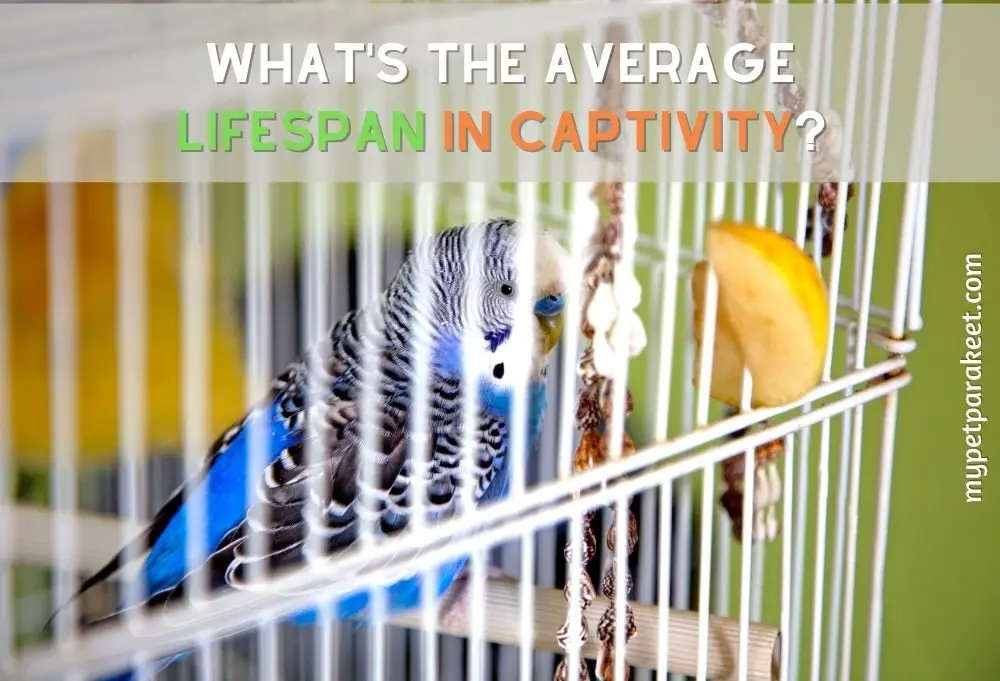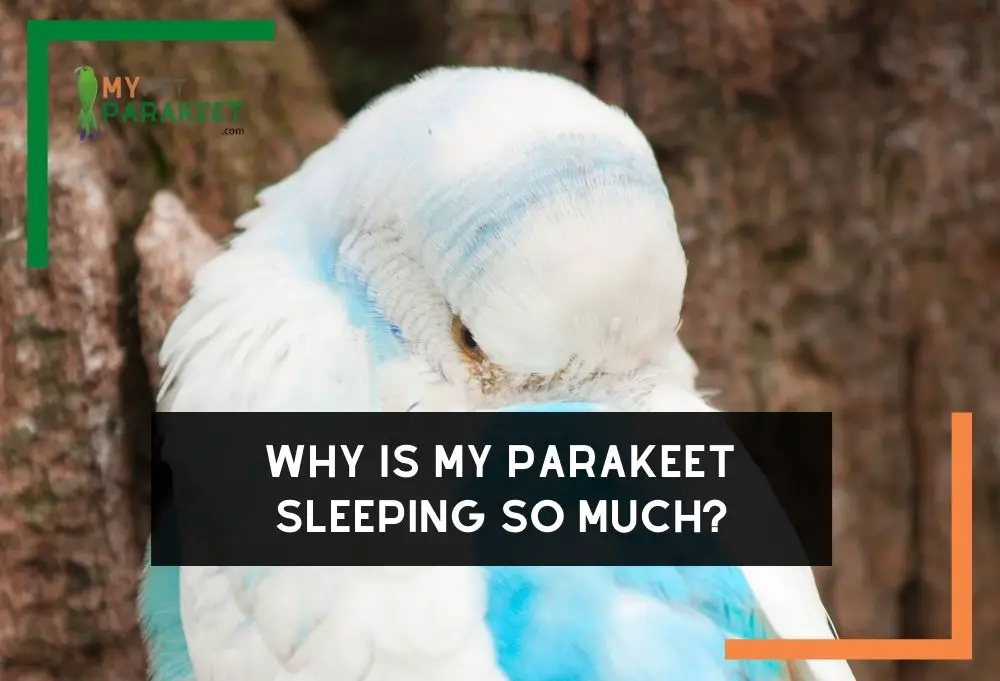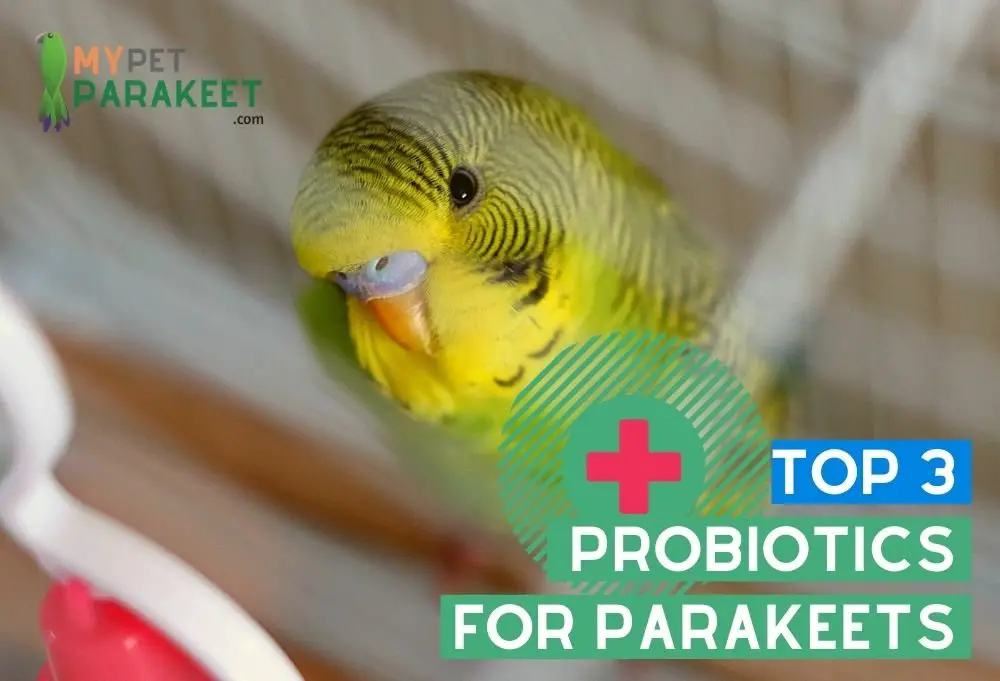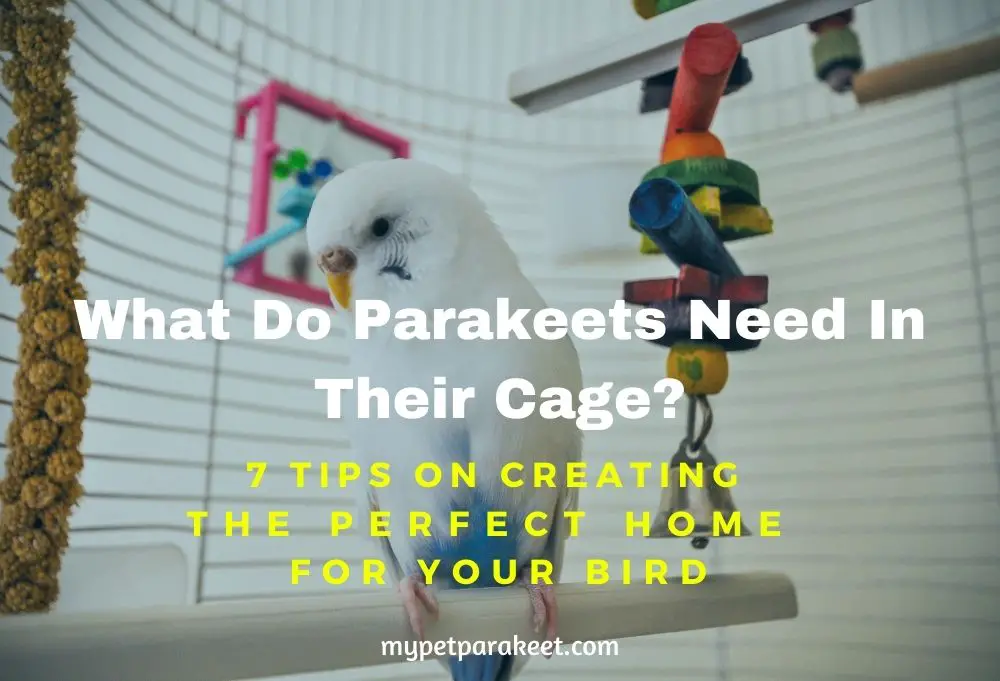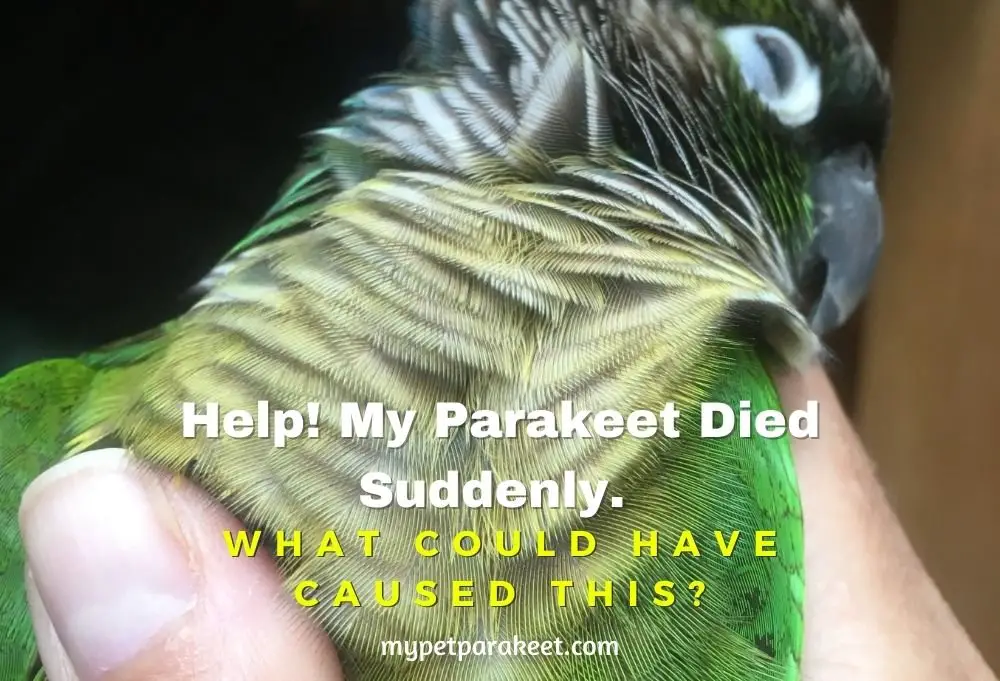Most parakeets live to be about 10-15 years old in captivity. If you're wondering how long your parakeet can live, or if you want the best chance of ensuring that they live a long and healthy life, keep reading!
Parakeets are sensitive creatures who require a lot of care. Additionally, parakeets need fresh vegetables daily to maintain good health. Don't forget to provide your parakeet with both seeds and pellets (in addition to fruits and veggies) for a balanced diet!
But while we will talk about the huge role a parakeet's diet plays in determining its lifespan, there are many other factors to consider if you want your parakeet to live the most extended, healthiest life possible (and as close to 20 years as possible).
How Can You Ensure Your Parakeet Lives The Longest Healthiest Life Possible?
– Your Parakeet's Diet
– Your Parakeet's Cage Size And Material Considerations
– Parakeet Health Checks And Routine Veterinary Care
– Other Bird Companionship (if applicable)
These are the main variables you can control to ensure your parakeet lives the longest, healthiest life possible.
First, let's talk about the parakeet diet!
What Role Diet Plays In A Parakeet's Lifespan In Captivity
You can dramatically lower or extend a parakeet's lifespan in captivity based on diet alone. If a parakeet is fed a diet that is not nutritious and balanced, it will no doubt suffer health consequences.
Diets should consist of pellets made from high-quality seeds and grains (i.e., non-GMO or organic parakeet mix) and supplemented with fresh vegetables such as kale or broccoli, fruit like blueberries or strawberries, and small amounts of healthy parakeet treats such as millet spray or sunflower seeds.
Pellets should be offered in the morning and evenings on a schedule that alternates every other week (i.e., one type of pellet per day). Fresh vegetables, fruit, and parakeet treats can be given daily to parakeets of all ages.
Feeding your parakeet organic bird feed is recommended but not always feasible, however, and parakeets can live long, healthy lives on a non-organic parakeet mix.
How Might Your Parakeet's Cage Effect Its Lifespan?
This parakeet lifespan can depend on a number of factors, including how the parakeet is taken care of in captivity. This is how the cage it lives in plays a significant role. If your parakeet lives in an outdoor aviary, or if it is allowed to fly freely within its household at all times, this may help extend its life expectancy by as much as two years!
Likewise, if your parakeet is kept in a small cage, unable to fly about, or one with limited perches and toys available, surprisingly, the parakeet lifespan may be shortened by up to two years.
A parakeet's cage should be large enough for it to fly around without hitting its wings on the top or sides of cage bars and perches. The size of a parakeets' wingspan is about 12 inches, so make sure that your parakeet's cage is large enough to facilitate this.
On the matter of perches and toys, your parakeet's cage should include a lot of different types of perches and toys to allow for the parakeet to engage in its natural activities, such as climbing, playing with little wooden blocks or balls, looking out from high vantage points like tall tree branches, etc.
There are also cage items like wall foraging toys that simulate the outdoor environment and the parakeet's natural behavior of foraging in tree bark.
He should be able to climb up and down the perches freely, without experiencing any pain or discomfort from his feet slipping on a surface that is too slippery, so different sizes and textures are important.
You might wonder, how does what toys I buy my parakeet affect his lifespan? Simple. Parakeets are very active and playful little birds; they need to engage in their natural activities to stay healthy and happy. If parakeets don't have enough toys or things for them to do inside of the cage, it can lead to boredom which will eventually wear on them psychologically.
Health Checks And Routine Parakeet Veterinary Care
You should schedule parakeet veterinary care visits about once a year to make sure your parakeet is healthy and happy. These can include annual parakeet checkups, vaccinations, or even surgery for your parakeet if needed.
These checkups should be held by an avian veterinarian, and you should carry your notes with any concerns you have, big or small, to make sure they are addressed.
Your veterinarian will also be able to advise you if your parakeet is getting enough micronutrients and vitamins and offer help in this way, also. Most parakeets aren't getting enough Vitamin D from sunlight.
Many owners skip out on regular health checks, and this can be life or death for parakeets. This isn't the best approach as you want to make sure your parakeet is getting the best care possible and that there are no problems going unnoticed with health checks.
Parakeets need routine veterinary checkups just like dogs or cats do, so never skip them!
Last but not least… companionship.
Other Bird Companionship
As much as your parakeet loves to chit-chat with you, it needs the company of other parakeets or other small birds. The more parakeet companions your parakeet has, the happier it will be. Please provide at least two birds per cage for best results and to ensure that one bird doesn't get lonely without a social partner to keep him or her company.
Although they are generally happy to be kept as the pets of loving humans. Never forget that parakeets are flock animals and need company. This is not always possible, of course, and sometimes, simply adding a mirror to their cage will help parakeets feel less lonely. Parakeets REALLY like mirrors!
Conclusion
The best way to ensure that your parakeet lives a long, healthy life is by taking these factors into consideration. Parakeets require annual health checks and routine veterinary care to ensure that they are free from parakeet illnesses.
Parakeets in captivity should be provided with a parakeet cage size appropriate for them and also take into account the parakeet's emotional needs as well as safety concerns (as some parakeets may chew or break things).
In addition, parakeets should be provided with non-toxic materials in their cage, such as stainless steel water and food dishes, goo quality parakeet toys to play with as well as parakeet perches.
Lastly, parakeets do better with a cage mate for companionship; if this is not feasible, a mirror helps to ensure that they don't get lonely.
And there you have it! I hope this blog post has helped you learn more about the lifespan of a parakeet and how to keep your parakeets healthy for a lifespan exceeding 15 years.

